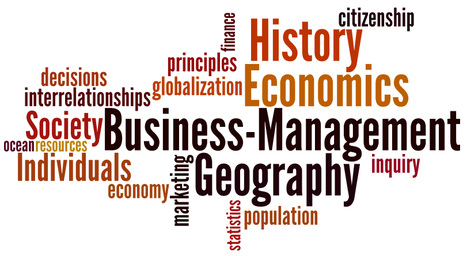Welcome to Grade 7 Individuals and Societies

MYP individuals and societies encourages learners to respect and understand the world around them and equips them with the necessary skills to inquire into historical, contemporary, geographical, political, social, economic, religious, technological and cultural factors that have an impact on individuals, societies and environments. It encourages learners, both students and teachers, to consider local and global contexts. MYP individuals and societies incorporates disciplines traditionally studied under the general term “the humanities” (such as history and philosophy), as well as disciplines in the social sciences (such as economics, business management, geography, sociology and political science).
In this subject group, students can engage with exciting, stimulating and personally relevant topics and issues. Many sensitive and personally challenging topics require careful consideration in the context of a safe and responsible learning environment characterized by respect and open-mindedness. The study of individuals and societies helps students to appreciate critically the diversity of human culture, attitudes and beliefs. Courses in this subject group are important for helping students to recognize that content and methodology can be debatable and controversial, and for practising the tolerance of uncertainty. The IB’s approach to individuals and societies includes a strong focus on inquiry and investigation. Students collect, describe and analyse data used in studies of societies; test hypotheses; and learn how to interpret increasingly complex information, including original source material. This focus on real-world examples, research and analysis is an essential aspect of the subject group. The study of individuals and societies helps students to develop their identities as individuals and as responsible members of local and global communities. These explorations of our common humanity are intrinsically interesting, and disciplines in this subject group are filled with potential for creating in students a lifelong fascination with “the human story” as it continues to evolve in an era of rapid change and increasing interconnectedness. Studies in individuals and societies are essential for developing empathy and international-mindedness, including the idea that “other people, with their differences, can also be right” (IB mission statement).
Excerpt from the MYP Individuals and Societies guide 2015
In this subject group, students can engage with exciting, stimulating and personally relevant topics and issues. Many sensitive and personally challenging topics require careful consideration in the context of a safe and responsible learning environment characterized by respect and open-mindedness. The study of individuals and societies helps students to appreciate critically the diversity of human culture, attitudes and beliefs. Courses in this subject group are important for helping students to recognize that content and methodology can be debatable and controversial, and for practising the tolerance of uncertainty. The IB’s approach to individuals and societies includes a strong focus on inquiry and investigation. Students collect, describe and analyse data used in studies of societies; test hypotheses; and learn how to interpret increasingly complex information, including original source material. This focus on real-world examples, research and analysis is an essential aspect of the subject group. The study of individuals and societies helps students to develop their identities as individuals and as responsible members of local and global communities. These explorations of our common humanity are intrinsically interesting, and disciplines in this subject group are filled with potential for creating in students a lifelong fascination with “the human story” as it continues to evolve in an era of rapid change and increasing interconnectedness. Studies in individuals and societies are essential for developing empathy and international-mindedness, including the idea that “other people, with their differences, can also be right” (IB mission statement).
Excerpt from the MYP Individuals and Societies guide 2015
